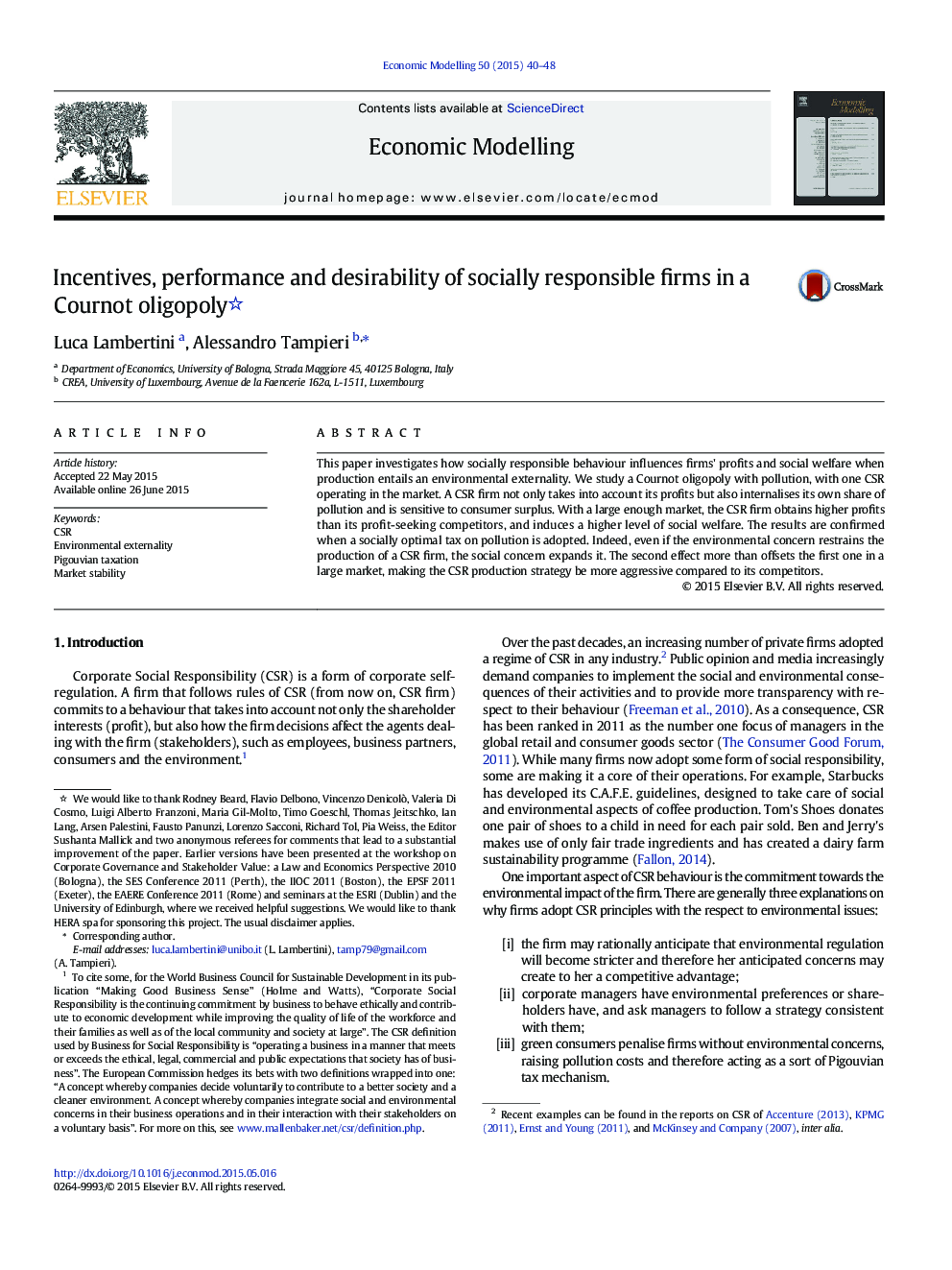| Article ID | Journal | Published Year | Pages | File Type |
|---|---|---|---|---|
| 5053426 | Economic Modelling | 2015 | 9 Pages |
â¢We analyse a market with one CSR and n â 1 profit-maximising (PM) firms.â¢The CSR firm is assumed to internalise pollution and consumer surplus.â¢This maxim allows the CSR firm to outperform PM rivals.â¢It also ensures higher social welfare than a fully PM oligopoly.â¢These results are robust to the introduction of emission taxation.
This paper investigates how socially responsible behaviour influences firms' profits and social welfare when production entails an environmental externality. We study a Cournot oligopoly with pollution, with one CSR operating in the market. A CSR firm not only takes into account its profits but also internalises its own share of pollution and is sensitive to consumer surplus. With a large enough market, the CSR firm obtains higher profits than its profit-seeking competitors, and induces a higher level of social welfare. The results are confirmed when a socially optimal tax on pollution is adopted. Indeed, even if the environmental concern restrains the production of a CSR firm, the social concern expands it. The second effect more than offsets the first one in a large market, making the CSR production strategy be more aggressive compared to its competitors.
